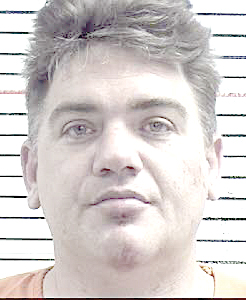WINNSBORO – A sixth judicial circuit court judge has ordered a Fairfield man charged with killing his parents to be released from a state mental hospital and treated on an outpatient basis.

Matthew Richard Mahorsky
Matthew Richard Mahorsky, who was found not guilty by reason of insanity in the shooting deaths, will be sent to a residential care facility in Piedmont, S.C. where he will be treated and supervised by the Piedmont Mental Health Center, the S.C. Department of Mental Health Not Guilty by Reason of Insanity Outpatient Clinic (NGRI Outpatient Clinic), and the Department of Probation Parole and Pardon Services.
Mahorsky, 45, has been housed in a high security wing of the G. Werber Bryan Psychiatric Hospital in Columbia since the trial concluded in October 2017, according to prosecutors. He appeared in court June 28 for a hearing to decide whether to ease restrictions on his confinement.
Judge Brian Gibbons’ order for outpatient treatment was handed down on Monday, July 30. Mahorsky will remain at the current forensic inpatient facility until a bed becomes available at Gregory’s, according to the order.
The S.C. Department of Mental Health had asked Gibbons during the June 28 hearing to remove some restrictions on Mahorsky’s confinement. Solicitors and the Fairfield County Sheriff’s Office, however, vehemently objected to the Department of Mental Health’s request.
“They were recommending less restrictive measures on him as far as their treatment,” said Riley Maxwell, an assistant solicitor with the 6th Judicial Circuit. “We objected to that, we want him to remain where he is. He is behind a locked fence door. He is secure now.”
But DMH representatives declined to comment about the June 28 hearing, citing patient privacy laws.
A spokesman said, generally speaking, discharge hearings follow an intensive process that requires approval from a DMH review board, which then makes a recommendation to an agency deputy director, who must request a hearing if they believe one is warranted.
If so, it’s up to a judge to determine whether or not the patient should be released, said Mark Binkley with DMH.
“The Court may and usually does impose conditions when discharging an individual found [not guilty by reason of insanity],” Binkley said in an email. “The court’s jurisdiction over the defendant continues for as long as the defendant could have been incarcerated.”
Terms and conditions of Mahorsky’s outpatient treatment include strict compliance with keeping scheduled appointments, participation in scheduled activities and the taking of all medications.
Mahorsky must continue to live in a residence approved by his treatment staff and the Department of Probation, Parole and Pardon Services. Should Mahorsky at some point in the future establish residence in a county other than Greenville, responsibility for follow-up care, treatment and monitoring will be transferred to the mental health center and office of the Department of Probation, Parole and Pardon Services which serve Mahorsky’s new county of residence, according to Judge Gibbons’ order.










THIS IS A BAD AND SAD SITUATION. I LIVE ACROSS THE ROAD FROM THE MAHORSKYS. MATTHEW WAS A NICE NEIGHBOR AND HIS PARENTS WHERE GOOD FOLKS. WE NEW HE HAD ISSUES WITH HIS DAD, BUT NOT THE SERIOUSNESS OF THE HIS PROBLEMS. EVERYONE KNOWS OF THE SHORTAGE OF STAFF AND RESOURCES THAT ALL STATE AGENCIES HAVE. EVEN WITH THE BEST OF INTENTIONS, MATTHEW CAN NOT BE MONITORED AS HE SHOULD BE. SOONER OR LATER SOMEONE WILL SLIP UP AND HE MAY DECIDE TO RETURN TO HIS OLD HOME WHICH HIS FAMILY STILL OWNS BUT RENTS. MY FAMILY AND NIEGHBORS ARE ALL WORRIED ABOUT WHAT MAY HAPPEN .